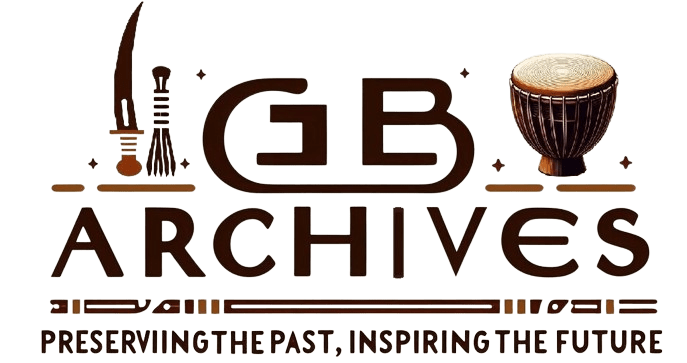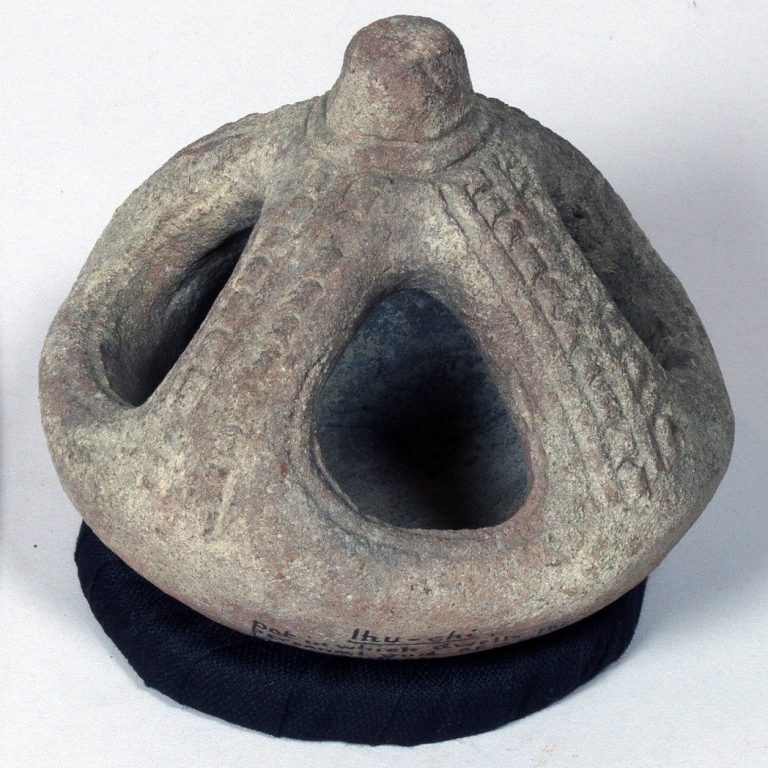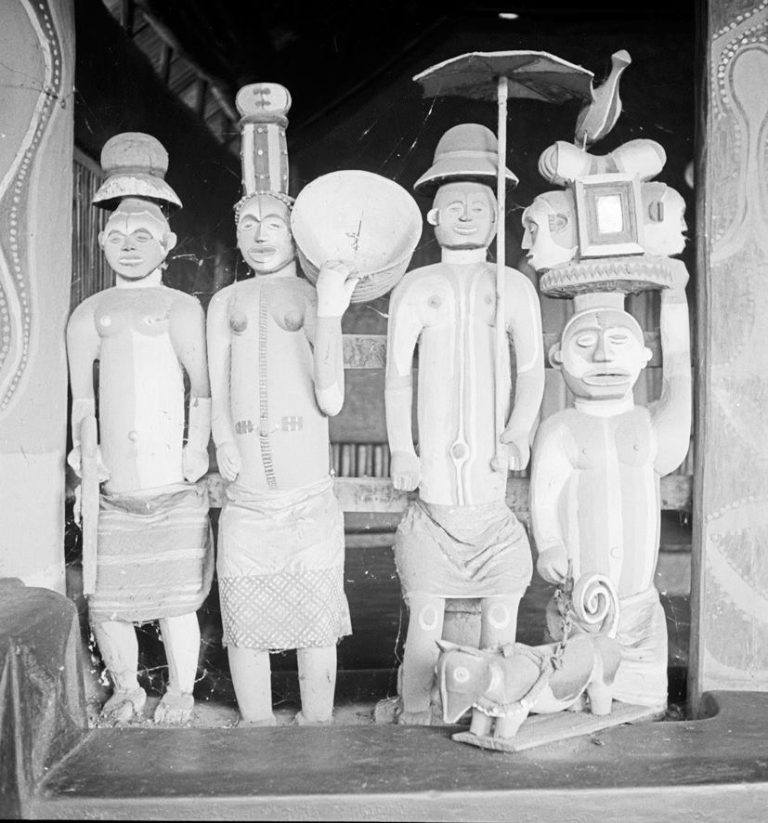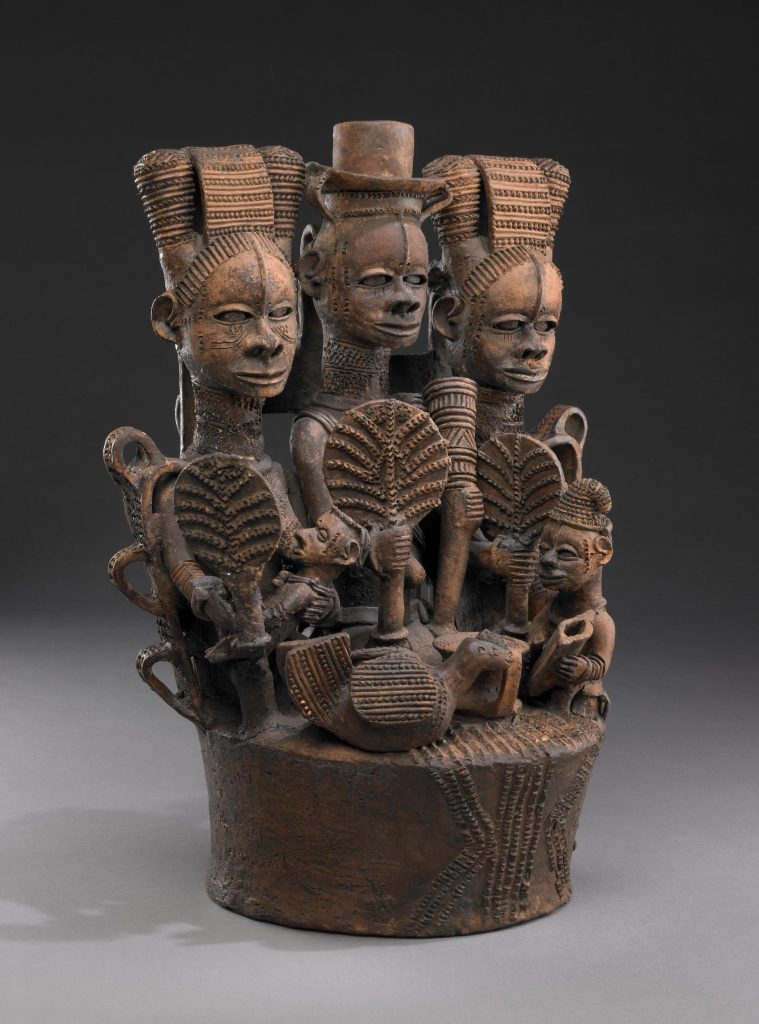
Ceramic group of figures on a stand, made of pottery. In the centre is a man holding a drinking-horn in his left hand and a fan in his right, both signs of his status. Either side of him are two pregnant women, probably his wives, with elaborate hairstyles and scarification, and holding fans, the right-hand one holding a child. Seated in front is a servant or child with a gong and a fowl, possibly a sacrifice for the yam deity, Ifejioku; and a brazier.
Ifejioku, also known as Ahia Njoku, is the deity of yams and agriculture in Igbo mythology. This deity ensures the land’s fertility and the success of yam harvests. As the guardian of yam farmers, Ifejioku blesses those who honor him with abundant harvests.
Explore Further
For more on this topic, explore the post below. It provides a deeper insight.
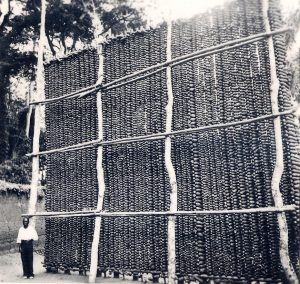 Cultural Insights
Cultural Insights
Yams, often called the “king of crops,” play a pivotal role in Igbo culture. They serve as more than just a dietary staple; they deeply interweave into the social, economic, and spiritual fabric of the Igbo people. This article explores the historical and cultural importance of yams, their role in rituals and ceremonies, and the reverence of the yam deity, Ifejioku.
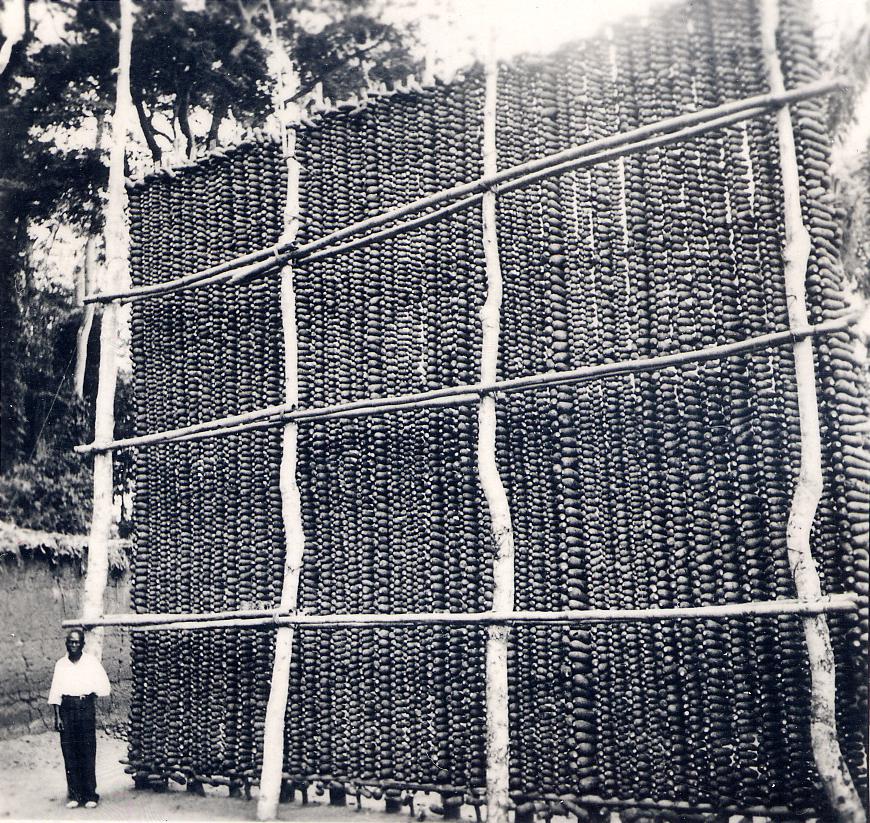
Historical Significance of Yams
For centuries, yams have been central to Igbo society. In ancient times, yam cultivation marked the beginning of the farming season, symbolizing renewal and hope. The labor-intensive process of growing yams demanded skill and dedication, making it a respected endeavor. In Igbo societies, a man’s wealth and social standing often depended on the size of his yam barn; a larger barn signified prosperity and the ability to provide for one’s family and community.
Igbo mythology also highlights the importance of yams. The legend of Eri, a revered figure, tells how he received the knowledge of yam cultivation from the gods and shared it with the Igbo people. This story emphasizes the crop’s divine origins and its role as a staple food and cultural symbol.
Cultural Importance of Yams
In Igbo culture, yams are known locally as “Ji” and are esteemed as symbols of wealth, fertility, and prosperity. Various festivals and rituals celebrate their significance.
Festivals and Rituals
One of the most important cultural events in Igboland is the New Yam Festival, or “Iri Ji.” Held annually between August and October, this festival marks the start of the yam harvest season. It serves as a time for thanksgiving to the gods for a bountiful harvest and features communal feasting, traditional dances, and masquerade performances. The festival’s highlight is the offering of yams to the gods and ancestors, an act believed to bring blessings and protection to the community.
The New Yam Festival transcends geographical boundaries, celebrated by Igbo communities worldwide, from the United States to China. This global celebration underscores the cultural significance of yams and the unity it fosters among the Igbo diaspora.
Yams in Marriage and Social Ceremonies
Yams play a crucial role in Igbo marriage customs and social ceremonies. They are often included in the bride price, symbolizing the groom’s capacity to provide for his new family. During marriage negotiations, the presentation of yams underscores their importance as symbols of sustenance and prosperity. At marriage ceremonies, yams are prominently displayed and shared among guests, reinforcing the communal values that are central to Igbo society.
Yams in Spiritual and Ancestral Worship
In Igbo spiritual and ancestral worship, yams hold a sacred place. They are offered to gods and ancestors during important ceremonies as signs of respect and gratitude. These offerings invoke blessings and ensure the community’s well-being. In ancestral worship, yams symbolize the enduring connection between the living and the deceased, reflecting the belief in the continuous influence of ancestors in their descendants’ lives.
Ifejioku: The Igbo Yam/Agriculture Deity
Ifejioku, also known as Ahia Njoku, is the deity of yams and agriculture in Igbo mythology. This deity ensures the land’s fertility and the success of yam harvests. As the guardian of yam farmers, Ifejioku blesses those who honor him with abundant harvests.
The Ifejioku festival, celebrated before the New Yam Festival, involves rituals and offerings to honor the deity. These rituals include the presentation of yams and other agricultural produce to Ifejioku as a gesture of gratitude and to seek blessings for a fruitful harvest. Farmers and community leaders participate in prayers and incantations to secure the deity’s favor and protection over their crops.
Culinary Uses of Yams
Yams are incredibly versatile in Igbo cuisine. They can be boiled, roasted, fried, or pounded into a dough-like consistency known as “pounded yam,” which is often served with various traditional soups. Yam dishes are not only delicious but also hold cultural significance, as we often prepare them during festivals and special occasions.
Economic Impact of Yams
Yam farming is a significant economic activity in Igboland. It provides livelihoods for many families and contributes to the local economy. The sale of yams at markets and festivals generates income and supports other businesses, such as those selling farming tools and fertilizers. The economic importance of yams extends beyond the local level, as they are also exported to other regions and countries.
Conclusion
Yams are integral to Igbo culture, symbolizing heritage, prosperity, and community identity. Preserving the traditions associated with yams is vital for maintaining the cultural fabric of Igboland. As modernity advances, it is crucial to remember and integrate these traditional practices to ensure they endure for future generations.
What are your thoughts on the cultural significance of yams in Igbo society? Have you experienced the New Yam Festival or other yam-related ceremonies? Share your experiences and insights in the comments below. We would love to hear from you!
References
- BBC – Birmingham – People – Yam and the Igbos.
- New Yam Festival of the Igbo – Wikipedia.
- Nigeria: How New Yam Festival keeps Igbo’s rooted traditions alive.
- Igbo Family Ceremonies and Traditions – igboguide.org.
- The Role of Spirits and Ancestral Spirits in Igbo Mythology: Guardians of Tradition and Identity.
- Iri Ji (New Yam Festival): The Origin, practice and significance in Igbo lives and culture.
- Ahia Njoku – Wikipedia.
- Njoku Ji – Wikipedia.
Explore Further
For more on this topic, explore our recommended readings below. Each provides deeper insights and a broader perspective.
Discover more from Igbo Archives
Subscribe to get the latest posts sent to your email.

